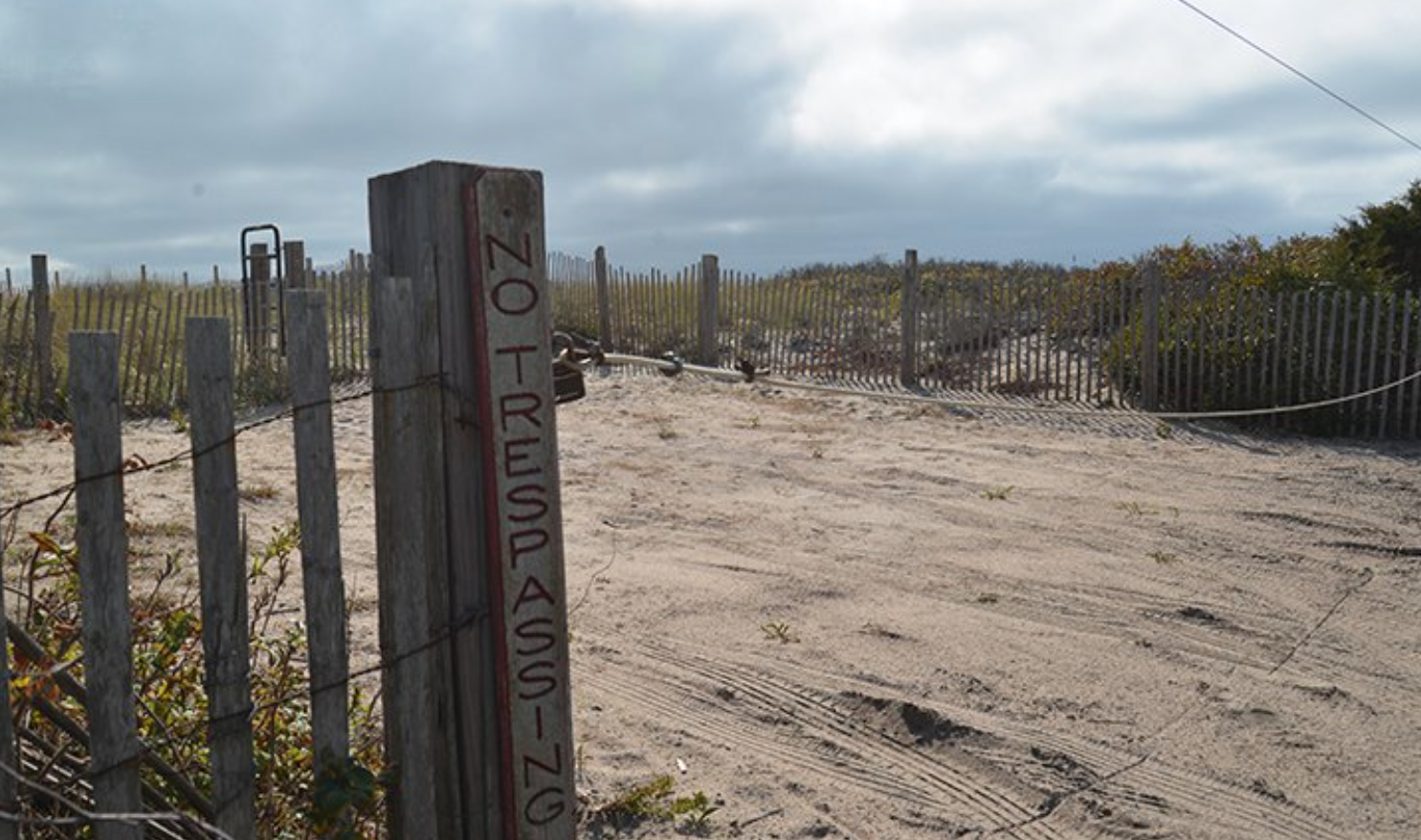ecoRI News — As Beach Days Come, So Does the Annual Ocean State Battle: Access and Parking
Ma7 16, 2022
By Rob Smith / ecoRI News Staff — WESTERLY, RI — With summer approaching, the state’s activists are gearing up for battle over that most Rhode Island of issues: beach parking.
“Parking is the backdoor way to privatize a public beach,” said Conrad Ferlah, a prominent local shoreline activist and administrator of the Facebook group Saving RI Coastal Access/Rights of Way. “If you remove all the parking within two miles [of a shoreline access point] is it still public access?”
To call the battles over public access to the shoreline as regular as the tides has become a local cliche. The Rhode Island Constitution enshrines residents’ rights to the shoreline, whether that be for walking or swimming or fishing or collecting seaweed. But waterfront property owners claim residents walking on the beach in front of their property are trespassing, or have horror stories of raucous parties or rude beachgoers.
But while the state constitution enshrines the right to enjoy the shore, it doesn’t have a lot to say specifically about access to that shore. In Rhode Island there are two ways to access the shore: lateral and perpendicular. Perpendicular means right-of-way points where the public is legally allowed to travel to the shore without trespassing on private property. Lateral access refers to the actual traveling up and down the shoreline.
The General Assembly recently concluded its study commission on shoreline access, releasing a report recommending the legislature pass into law language codifying lateral access to the shore, 10 feet landward from the seaweed line. The commission has resulted in legislation, H8055, introduced by Rep. Terri Cortvriend, D-Portsmouth, that would do just that.
The current legal precedent sets lateral access rights below the mean high-water line, a line that no beachgoer, let alone property owner, can identify without sophisticated scientific equipment and data, and which is underwater for portions of the day.
The legislation providing a path 10 feet landward of the seaweed line is meant to fix what Rep. Blake Filippi, R-New Shoreham, called an “illusory right.”
But the study commission said nothing of perpendicular access to the shore or rights of way, despite receiving much public testimony over the issue.
…

